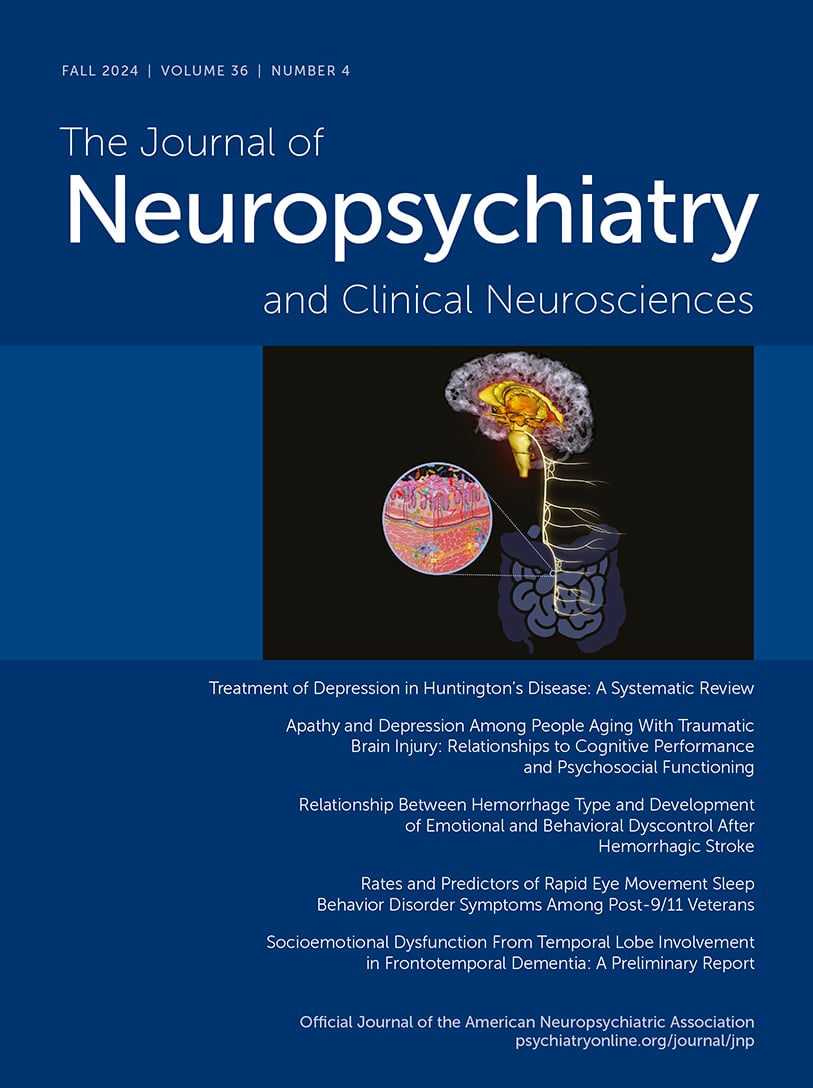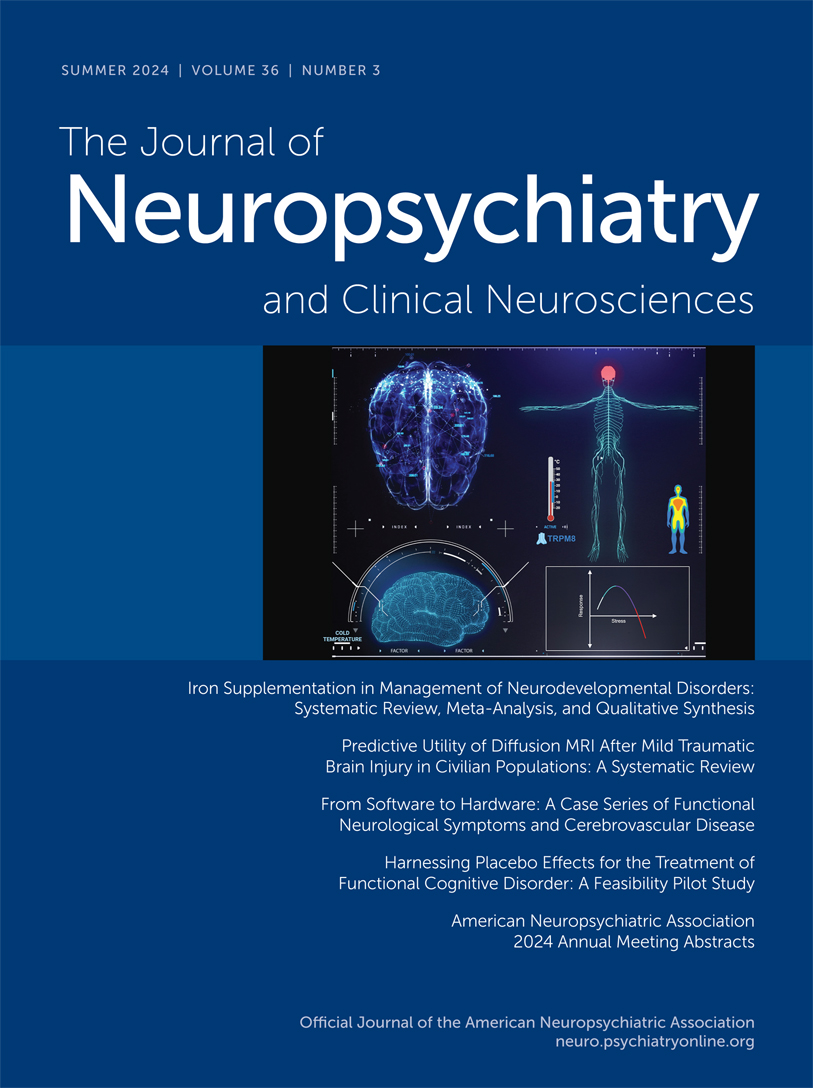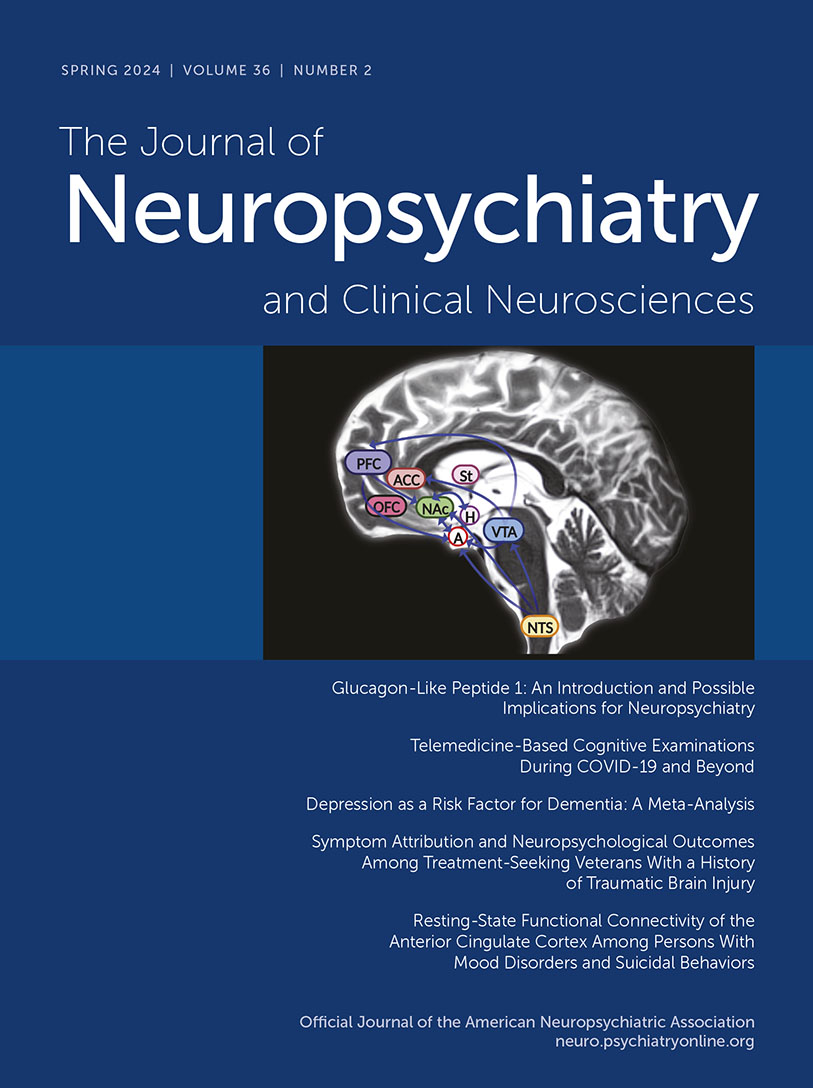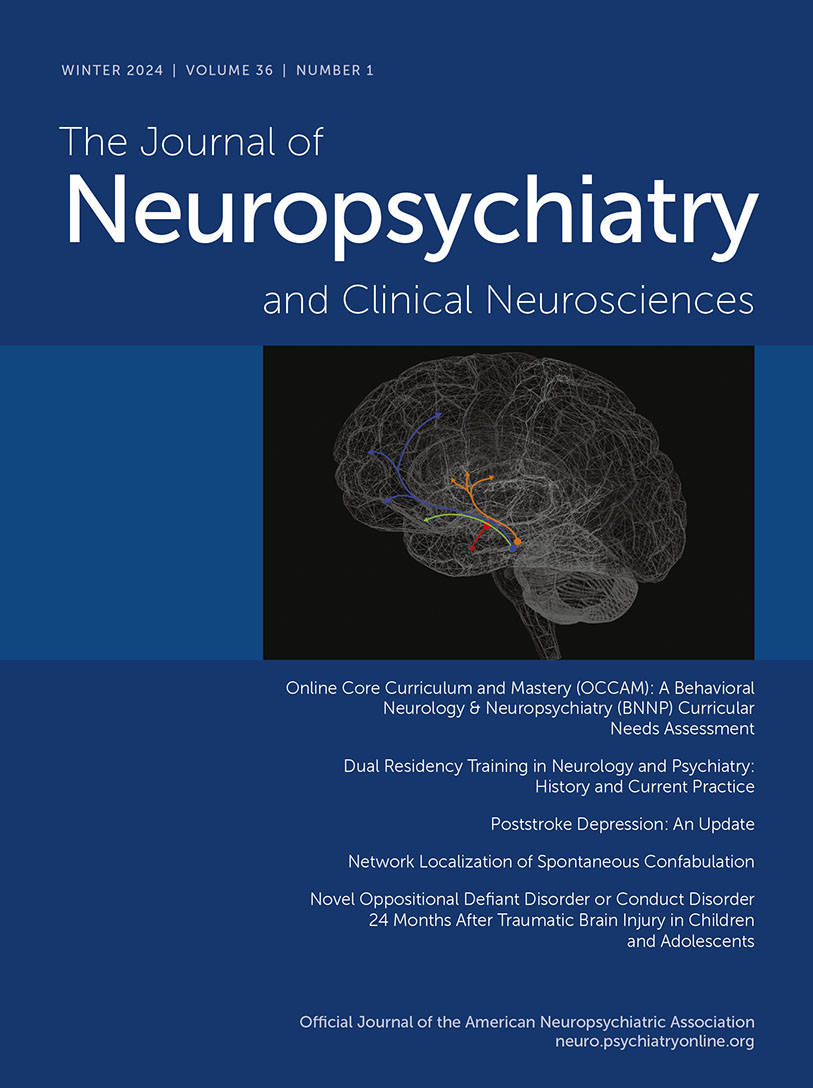The Journal of Neuropsychiatry and Clinical Neurosciences
- Volume 31
- Number 3
- July 2019
Windows to the Brain
Special Articles
Publication date: 08 March 2019
Pages188–195Objective: The purpose of this article was to determine the efficacy and tolerability of quetiapine compared with placebo or other interventions for psychosis in parkinsonism. Methods: Participants with a diagnosis of parkinsonism participated in randomized ...
https://doi.org/10.1176/appi.neuropsych.18080180Regular Articles
Publication date: 22 February 2019
Pages196–200Objective: Deep brain stimulation (DBS) is an effective treatment for motor symptoms of Parkinson’s disease; however, there is conflicting literature about the effect of DBS on cognitive function. The authors conducted a historical cohort study involving ...
https://doi.org/10.1176/appi.neuropsych.18050118The Neural Correlates of Impaired Self-Monitoring Among Individuals With Neurodegenerative Dementias
Publication date: 03 January 2019
Pages201–209Objective: Self-monitoring is a crucial component of human empathy and necessary for the formation and repair of social relations. Several studies have brought to light possible neuronal substrates associated with self-monitoring, but the information that ...
https://doi.org/10.1176/appi.neuropsych.17120349Publication date: 14 January 2019
Pages210–219Objective: Subtle and gradual changes occur in the brain years before cognitive impairment due to age-related neurodegenerative disorders. The authors examined the utility of hippocampal texture analysis and volumetric features extracted from brain ...
https://doi.org/10.1176/appi.neuropsych.17120366Publication date: 14 January 2019
Pages220–227Objective: Depression is a highly prevalent neuropsychiatric sequela among individuals who have experienced traumatic brain injury (TBI). Despite its high prevalence, there continues to be conflicting evidence surrounding the efficacy of medication for ...
https://doi.org/10.1176/appi.neuropsych.18070158Publication date: 19 March 2019
Pages228–238Objective: Response inhibition has been frequently studied in obsessive-compulsive disorder (OCD) with mixed results. The inconsistent findings may stem in part from failure to consider the heterogeneity of the disorder. Methods: The authors examined ...
https://doi.org/10.1176/appi.neuropsych.18070166Publication date: 22 February 2019
Pages239–245Objective: ALPIM (anxiety, laxity, pain, immune, and mood) syndrome has been previously described in adults. The authors aimed to identify its occurrence in adolescents and confirm its existence in adults. Given the association of the disorder with somatic ...
https://doi.org/10.1176/appi.neuropsych.18080174Clinical and Research Reports
Publication date: 19 March 2019
Pages246–253Objective: Previous studies have suggested that autoantibodies associated with systemic autoimmune disorders are more prevalent in patients with psychotic and affective disorders compared with healthy control subjects. However, most positive studies ...
https://doi.org/10.1176/appi.neuropsych.18040069Publication date: 03 April 2019
Pages254–263Objective: The recent advent of individualized resting-state network mapping (RSNM) has revealed substantial interindividual variability in anatomical localization of brain networks identified by using resting-state functional MRI (rsfMRI). RSNM enables ...
https://doi.org/10.1176/appi.neuropsych.18100230Case Reports
Abstracts
Past Issues
View Issues Archive
Vol. 36 | No. 4

Vol. 36 | No. 3

Vol. 36 | No. 2
